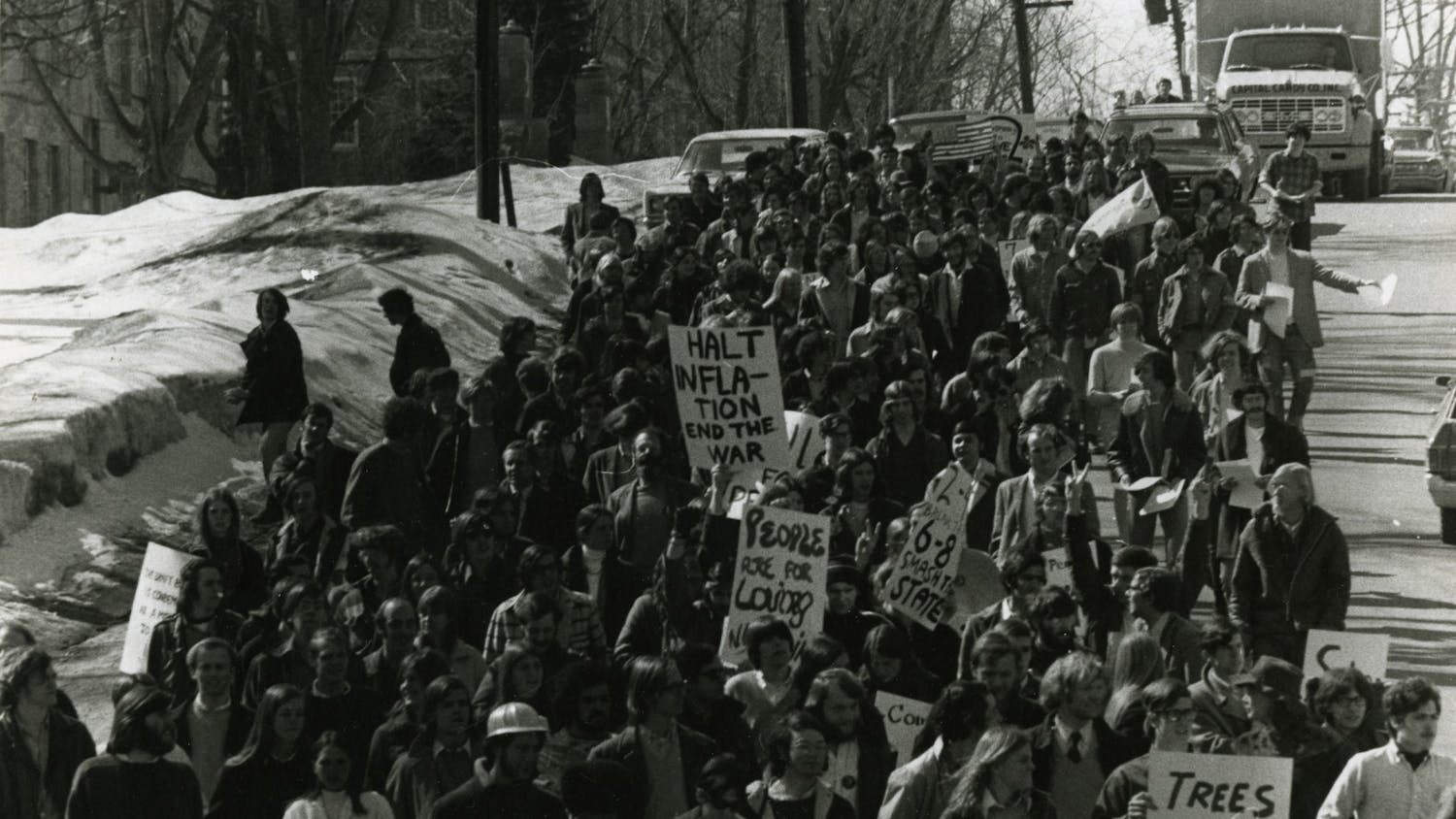The most recent time I was stopped and harassed by police was shortly after I moved into the house that my wife and I bought in Middlebury. Perhaps a month after we moved in, I decided to finally go check out that adorable little library a short ways down the street, right near the alpaca farm, the playground and across from the residents who make and sell maple syrup from their house. I remember walking down Main Street and — right before entering the library — seeing the cop car drive past and do a U-turn. And, sure enough, a few moments after I sat down in the library, after I greeted the charming, elderly librarian, after I picked up whichever graphic novel caught my eye, the cop followed me in. Then came the usual: “I need to see your ID sir, we’ve had reports of suspicious behavior,” and various other rationalizations.
As usual, I gave the cop my ID. As usual, he called it in. As usual, there was a moment of panic, where I wondered if this was the time there would be a case of mistaken identity, and I would get hauled off to jail, something which also very nearly happened to Clarence Evans. Fortunately, luck was on my side this time, and the cop left. The librarian, who witnessed all this, was almost as angry as I was. On the walk back home, I passed another neighbor, a white woman, standing outside a home. We started chatting, and I told her about what had just happened. This dark look came in her eyes, and she said, “Yeah, they’ve been doing that a lot to the Black guys who live in this house too.” I’ll bet.
That incident meant that I’ve been harassed, stopped and questioned by cops in every single state that I’ve lived in for more than four months. A part of me wondered, “What constitutes suspicious behavior in walking to the library?” But not really. After all, the things I’ve done that have warranted being stopped and questioned (besides a neighborhood reading stroll) include:
Waiting for a pizza delivery.
Standing beside my friend as she took money out of the ATM.
Taking my own money out of the ATM.
Riding as a passenger in the car of a white woman.
Jumping rope outside.
My experience could certainly have been worse. That same month I was harassed while waiting for pizza, a friend of mine called to report a prowler outside his window — and when the cops showed up, they maced, tackled and handcuffed him. Perspective is important. But the reality is that to be Black is to exist under a perpetual cloud of suspicion.
Our bodies are suspect, which means we can’t do certain mundane things without risk. Can’t purchase a BB gun from a store that sells BB guns. Can’t sell loose leaf cigarettes. Can’t go to the window if you hear a suspicious noise outside. All of those things could be a death sentence. Our minds and intellects are also suspect. Can’t work your ass off, scrape together funding and scholarships and go to one of the best colleges in America without having some white students, white administrators and white professors treat “Blacks and Latinos are genetically stupider than white people” as Legitimate Scholarly Inquiry™.
In my first draft of this essay, I started with “The last time I got stopped and harassed by police…” but I only hope it’s the last time. As Tamir Rice (if he wasn’t already killed) or Marvia Gray (assuming she’s not still traumatized) could have told you, as long as you’re Black in America, you’re never too old or too young to be under suspicion. George Floyd was killed at 46, which is only a few years older than me. With any luck, I’ll keep going for decades more yet.
But George Floyd will forever be 46. When I think about it, I can’t breathe.
Kemi Fuentes-George is a professor of political science at Middlebury.
Automatically Suspect: Being Black in America
Comments


